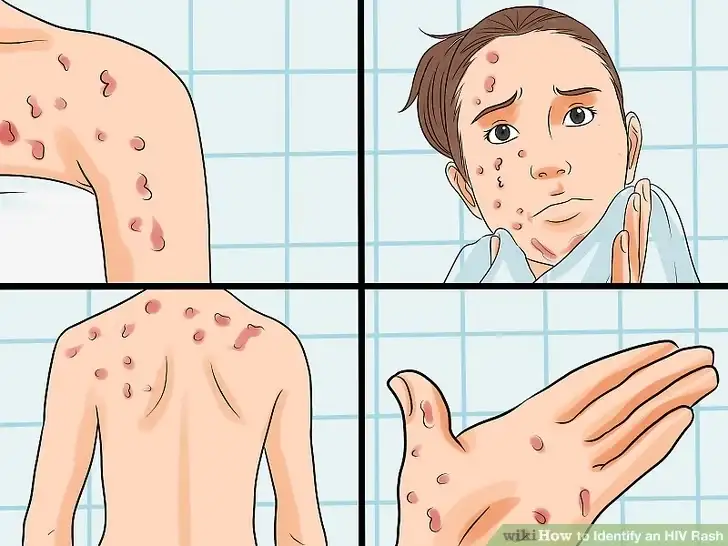HIV Symptoms: A Comprehensive Guide to Early and Late Stage Signs
Introduction: Understanding HIV Symptoms
Human Immunodeficiency Virus (HIV) is a virus that attacks the body's immune system, specifically the CD4 cells (T cells), which help the immune system fight off infections. Understanding HIV symptoms is crucial because early detection leads to better health outcomes and helps prevent transmission to others. The symptoms of HIV vary depending on the stage of infection, and some people may not experience any symptoms at all for years. This comprehensive guide will walk you through the early and late-stage symptoms of HIV, helping you recognize potential signs and understand when to seek testing and medical care.
The Three Stages of HIV Infection
HIV progression typically occurs in three distinct stages, each with its own characteristic symptoms:
- Acute HIV Infection (Primary Infection)
- Clinical Latency (Chronic HIV Infection)
- AIDS (Acquired Immunodeficiency Syndrome)
Understanding the symptoms associated with each stage can help with early detection and appropriate medical intervention.
Stage 1: Acute HIV Infection Symptoms
Acute HIV infection, also known as primary HIV infection or acute retroviral syndrome, typically begins 2-4 weeks after exposure to the virus and can last for several weeks.
Common Early Symptoms
During this initial stage, the virus multiplies rapidly and spreads throughout the body. The most common symptoms include:

- Fever and Chills: This is one of the most common symptoms, occurring in up to 80% of newly infected individuals
- Fatigue and Malaise: Persistent tiredness that doesn't improve with rest
- Sore Throat: Often severe and persistent
- Swollen Lymph Nodes: Particularly in the neck, armpits, and groin
- Muscle and Joint Pain: Unexplained aches and discomfort
- Skin Rash: Typically red, non-itchy spots on the trunk of the body
- Night Sweats: Drenching sweats that soak through bedding
- Mouth Sores: Including thrush (white patches) or painful ulcers
- Headaches: Often severe and persistent
These symptoms are non-specific and not everyone will exhibit symptoms during acute HIV infection. Around 50% of AIDS-infected people have no acute symptoms in the initial stage. If you suspect that you have been in contact with a high-risk HIV infection within 72 hours, you can consider an emergency course of PEP treatment to prevent HIV infection.
If you think you have been exposed to HIV, the only way to know for sure is to get HIV tested.
Why Early Symptoms Are Often Missed
These early HIV symptoms are frequently mistaken for other common illnesses like mononucleosis, influenza, or severe colds. Many people don't connect them with possible HIV exposure, which is why testing is crucial if you've engaged in any high-risk behaviors.
Stage 2: Clinical Latency Stage
After the initial acute infection, HIV enters a period called clinical latency or chronic HIV infection. This stage can last for 10 years or longer with proper treatment, though it may progress faster in some individuals.
Symptoms During Clinical Latency
During this stage, the virus continues to reproduce at very low levels, and many people experience:
- Mild or No Symptoms: Some people remain asymptomatic for years
- Persistent Swollen Lymph Nodes
- Recurrent Respiratory Infections
- Skin Problems: Including dryness, flakiness, or minor infections
- Mild Fatigue: Often attributed to stress or busy lifestyles
- Fungal Nail Infections
The Importance of Treatment During This Stage
With proper antiretroviral therapy (ART), people in this stage can maintain their health and reduce their viral load to undetectable levels, which also prevents transmission to others.
Stage 3: AIDS-Defining Symptoms
Without treatment, HIV typically advances to AIDS, usually when the CD4 cell count falls below 200 cells per cubic millimeter of blood or when certain opportunistic infections or cancers develop.
Common AIDS Symptoms
- Rapid Weight Loss: Unexplained and significant weight loss
- Recurrent Fever: Persistent or recurring fevers
- Extreme Fatigue: Debilitating tiredness that interferes with daily activities
- Prolonged Swelling of Lymph Glands: Lasting for more than three months
- Chronic Diarrhea: Lasting for more than a week
- Neurological Symptoms: Including memory loss, depression, and nerve disorders
- Persistent White Spots or Lesions: On the tongue or in the mouth
- Purplish Growths: On the skin or mucous membranes (Kaposi's sarcoma)
- Recurrent Pneumonia: Or other serious infections
How to deal with HIV Results
If you tested positive for HIV, you should consult a doctor and get started on ART as soon as possible.
If you tested negative for HIV, you may consider taking preventive measures to prevent HIV infection, such as practice safe sex, and the use of pre-exposure prophylaxis (PrEP).
People in the chronic HIV infection state usually show no symptoms.
The use of ART during chronic HIV infection and maintaining an undetectable viral load can prevent damage to the immune system and reduce the risk of transmission to others. Regular monitoring of CD4 count and viral load is vital for all people living with HIV.
If left untreated, most people will slowly progress to AIDS within 10-15 years.
(Text Only)

